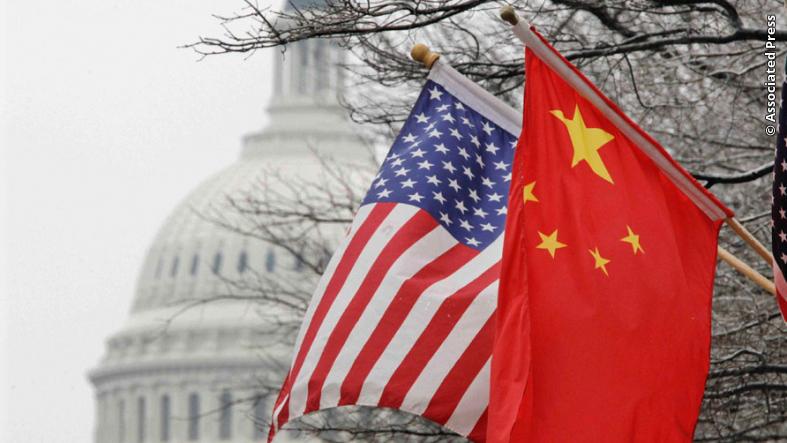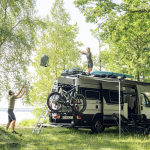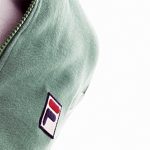By Thomas J. Ryan and Eric Smith
<span style="color: #8c8c8c;">For the second year in a row, the ongoing trade war between the United States and China topped SGB Executive’s list of the Top 10 stories for 2019 across the active lifestyle marketplace.
But other hot topics emerged as well including the impact of firearms on brands and retailers, major changes to the trade show landscape, Modell’s brush with bankruptcy and more.
SGB Executive compiled the Top 10 stories we ran based not only on clicks but on how they shaped—and continue to shape—the industry. Later this week, look for SGB Executive’s list of What to Watch in 2020, a list that is sure to include some of last year’s top stories as the industry evolves.
Trade War Unsettles Industry
On December 19, the Outdoor Industry Association (OIA) reported that since the trade war began in 2018, outdoor businesses have paid an additional $2.7 billion in punitive Section 301 tariffs. Many had feared the damage from tariffs would be worse but a number of tariff actions were delayed.
Nonetheless, the industry, throughout the year, has pursued mitigation strategies to offset the tariff threats including moving sourcing, seeking out price concessions from suppliers and squeezing out more efficiencies in the supply chain. Price increases have been minimal overall but some categories, such as cycling, were particularly impacted.
The latest numbers came despite the announcement in early December that the United States and China had reached a Phase One trade deal that would indefinitely postpone a new round of tariffs and roll back rates on a previous round. Industry trade groups called on the removal of all tariffs.
Said SFIA President and CEO, Tom Cove. “These tariffs have negatively impacted the sport and health industry, and we are hopeful that this trade agreement comes to fruition.”
Firearms Issue Creates Fork In The Road
Companies across the active lifestyle marketplace were caught up in the ongoing debate over firearms—including Dick’s Sporting Goods, Sportsman’s Warehouse, Walmart, Vista Outdoor, and its CamelBak brand—but each one took a different path.
Dick’s Sporting Goods continued to step back from the sale of firearms and ammunition with its most recent example being the sale of eight Field & Stream stores to Sportsman’s Warehouse Holdings Inc.
Walmart in September said it would stop selling certain forms of ammunition, asked customers to no longer openly carry guns in their stores and called on President Trump and other lawmakers to pass background check legislation.
Vista Outdoor sold its Savage Arms and Stevens firearms brands to a financial buyer, which helped the company get its brands (Giro, Bell, CamelBak, Blackburn, and Camp Chef) back into REI Co-op stores. The outdoor retail giant had boycotted all Vista brands because of its firearms-focused assets but quickly inked a deal to get CamelBak on shelves.
Meanwhile, companies like Sportsman’s Warehouse doubled down on selling a wider assortment of firearms and ammunition in hopes of better serving its target audience of sportsmen and sportswomen. As CEO Jon Barker told SGB in a Q&A earlier this month, “We now have the largest assortment—of any retailer in America—of firearms.”
Trade Show Shakeup
The trade show landscape underwent significant changes in 2019, and it’s likely that more shakeups will occur in 2020 and beyond as industries across the active lifestyle marketplace—in particular the outdoor, running, RV, and paddlesports categories—optimize their offerings.
Without a doubt, the biggest news arrived earlier this month when the Co-founders of Paddlesports Retailer said they were scrapping that show and would launch the Big Gear Show, an outdoor hardgoods-only show scheduled to be held in Salt Lake City in July beginning 2020.
In other news from 2019, Outdoor Retailer moved Summer Market back to June (which it had planned to do), canceled November’s Winter Market due to poor attendance the previous year and announced that it would merge Winter Market and Snow Show into one event—Outdoor + Snow Show—beginning January 2020. The company also canceled Interbike, which it announced in late 2018.
Also, with the cancelation of OR’s November Winter Market (and therefore no Denver show to align with), Grassroots Outdoor Alliance announced it would move its fall Grassroots Connect show to Kansas City from Denver beginning November 2020.
The run specialty channel got a new B2B trade show with the Running Industry Association’s Kick Show, which debuted in Denver in June 2019 and moves to May in 2020.
Snowsports Industry Association acquired the consumer-focused Boston and Denver Ski and Snowboard Expos from BEWI Productions Inc. SIA will begin hosting the show in 2020 with changes expected and more shows possibly to follow.
And the Recreational Vehicle Industry Association (RVIA) scrapped the 2020 and 2021 installments of its new and improved trade show, “RVX: The RV Experience.” The organization held the show just once, last March in Salt Lake City, UT, but poor attendance led to the Reston, VA-based trade organization from going in a different direction. Future show plans are to be determined.
Modell’s Faces Bankruptcy Scare
On March 11, a Wall Street Journal article stating that Modell’s Sporting Goods had hired a restructuring advisor and was considering a bankruptcy filing. Mitchell Modell, the CEO, told SGB Executive that the advisors were hired for consulting purposes and not restructuring but said the timing couldn’t have been worse.
Some payments were late after a poor holiday, in large part due to warm weather. Modell’s CFO decided to join Town and Country Living and vendors had already been burned by the bankruptcies of Sports Authority, MC Sports and others. Within four days, daily shipments to Modell’s distribution center slowed to 7,000 from 18,000 as trade credit dried up.
Fearing he had just 48 hours to avoid a collapse, Modell’s strategy became to “over-communicate.” Modell and the chain’s chief merchandising officer reached out directly to all 300 suppliers, nondisclosure agreements documenting their financials were handed out and the CEO’s personal cell phone number was offered to anyone with concerns. Modell promised to invest $6.8 million into the company, and a new operating plan to drive further improvement was released. In the end, 297 of the 300 vendors resumed shipping to the retailer.
Cabela’s Acquisition Gives Rise To Two Startups
When Bass Pro acquired Cabela’s in 2017, it changed the overall sporting goods retail marketplace in general and the town of Sidney, NE in particular.
Two online startups—Nexgen Outfitters and Highby Outdoors—were started by entrepreneurs who had lost their jobs with Cabela’s in Sidney but wanted to continue selling outdoor, hunting and fishing gear to consumers. Any retail venture is risky, SGB reported earlier in the year on their ventures.
First up Nexgen Outfitters, which had been stymied by an injunction that prohibited the company from contacting vendors the founders had worked with during their final 18 months at Cabela’s. But that injunction expired in September, giving Nexgen the opportunity to target new suppliers for their e-commerce site and to shape the brand. With the noncompete removed, Nexgen’s employees shifted their focus to flourish outside the shadow of Cabela’s.
Highby Outdoors followed a similar path. The retailer initially offered an extensive line of outdoor products in hunting, firearms and shooting, fishing and marine, knives and tools, camping and outdoors, and optics. Future plans called for adding additional merchandise categories, including apparel and footwear, as well as retail locations and catalog operations.
Backcountry Backlash
In late October and early November, Backcountry.com faced a social media uproar and boycott threats as word spread about its move to sue a number of smaller outdoor brands and retailers for using the term “backcountry” in their name or product catalog.
The Colorado Sun on October 31 first detailed the lawsuits and Trademark Office petitions filed on behalf of Backcountry.com. Backcountry, which first trademarked the “backcountry” term in 2004 and filed for additional usage trademarks since then, launched a legal offensive against more than 50 defendants in a publicly available list from the United States Patent and Trademark Office.
Following the uproar, Backcountry.com CEO Jonathan Nielsen wrote in an open letter that the retailer’s attempts to protect its brand “were not consistent with our values.”
“We have heard your feedback and concerns and understand we fumbled in how we pursued trademark claims recently,” he wrote in the statement posted on the retailer’s website. He further noted that the company would drop a federal lawsuit filed against the operator of Marquette Backcountry Ski. “We made a mistake,” he said.
Nielsen then embarked on a “reparations tour” in which he visited small businesses impacted by the trademark action and made deals with the owners as reparation.
Climate Change Concerns Get Amplified
2019 was the year Greta Thunberg, the 16-year-old activist, became a household name and industry leaders stepped up their efforts to fight climate change.
“Climate change is the greatest existential threat facing our co-op,” wrote Eric Artz, REI’s CEO, in October in a letter to co-op members.
The letter said that REI would, once again, shut down its operations on Black Friday but instead of encouraging employees and Co-op members to head outside to enjoy the outdoors, it would urge them to “opt to act” and join a nationwide clean-up effort. Internally, Artz said REI is further “rethinking its core business model in favor of more mindful consumption,” including piloting used gear buy-back programs, ski rentals and a new online rental reservations system. Further steps were outlined to achieve zero-waste operations and challenges were made to the industry to eliminate unnecessary packaging. Wrote Artz, “As a single company, our impact is limited, but as a community, we can drive change that powers meaningful action beyond our walls.”
The 4Rs—reduce, repair, reuse, and recycle—were embraced more deeply by more companies in 2019 and other larger measures were taken. In early December, for example, Patagonia opened its first Worn Wear location. The store carries Worn Wear items (used Patagonia products brought back by customers) as well as the brand’s ReCrafted Collection, a new line of clothing made from finished goods that are beyond repair.
In June, Outdoor Retailer partnered with Nalgene to help eliminate single-use plastic bottles at Summer Market and set up more than 170 water refilling stations to encourage attendees not to use single-use plastic bottles while attending the show. Said Elissa McGee, general manager, Nalgene Outdoor, “Our partnership with Outdoor Retailer is about walking the walk and not just talking the talk.”
Nike Lands A Digital-First CEO
Nike announced in October that its longtime CEO, Mark Parker, would be stepping down and be replaced by former eBay CEO John Donahoe in January. Donahoe, who has been on the Nike board of directors for five years, was most recently president and CEO of ServiceNow.
Parker, who replaced Nike Founder Phil Knight as CEO in 2006, will remain with the company as executive chairman.
Donahoe’s hiring was seen as a sign that the sportswear giant intends to put the pedal to its consumer direct digital transformation strategy. Nike, which generated about 15 percent of sales from its website and retailer partner sites last year, had previously said it sees that percentage rising to 30 percent by 2023. The company expects online sales will surpass those made at retail. In the second quarter ended November 30, digital sales skyrocketed again to 38 percent.
“As for John, his proven experience in leading global strategy, digital commerce and enterprise technology will be invaluable as we continue our digital transformation,” Parker said on Nike’s Q2 conference call on December 20. “And his passion for sport, his commitment to developing teams and talent, and his growth mindset will make him a great Nike CEO.”
Under Armour Gets Its Second CEO
In October, Kevin Plank, who founded Under Armour in 1996 in his grandmother’s basement, announced plans to step down as CEO in January. Patrik Frisk, President, will succeed Plank, who will remain chairman and hold the title of “brand chief.”
Frisk joined Under Armour in July 2017 after holding top jobs at The Aldo Group and VF Corp.’s The North Face and Timberland brands. He was immediately tasked with guiding UA’s three-year restructuring program to improve execution as well as to revive business in North America by returning to the brand’s performance-driven roots.
Plank said the move would allow him to focus on “vision” and not get lost in the daily details of running the company’s operations. Plank said, “As my partner during the most transformative chapter in our history, he has been exceptional in his ability to translate our brand’s vision into world-class execution by focusing on our long-term strategy and re-engineering our ecosystem through a strategic, operational and cultural transformation.”
Farewell To Industry Titans
While 2019 saw a host of C-suite departures, the loss of some industry icons truly hit hard.
Jon Epstein, president, and chief global commercial of Fila North America died in February at the age of 63. Epstein was the first CEO and president of Fila from 1998 to 2003. He returned as North American president in 2007 after Sport Brands International Ltd. had sold the company to its Korean licensee, Fila Korea.
Epstein had earned credit for Fila’s recent turnaround in North America by balancing sales into large volume mid-tier and off-price retailers while steadily restoring the brand’s equity through streetwear label collaborations that brought Fila to Urban Outfitters and other influential retailers.
In early November, Gert Boyle, the chairman of the board of directors of Columbia Sportswear and its matriarch since 1970. passed away at the age of 95.
Boyle took over Columbia Sportswear in 1970 when her husband passed away. Mrs. Boyle was soon joined by her son, Tim, who together led the company to become one of the most successful outerwear brands in the industry. Boyle, aka “One Tough Mother,” became a household name for her memorable television commercials, but she will be best remembered as a pioneer in the outdoor industry.
Also in November, Burton Snowboard’s Founder, Jake Burton Carpenter, died in Burlington, VT, at the age of 65. He started the brand in Londonderry, NH in 1977, building most of Burton’s first snowboards by hand. His goal was to advance the rudimentary snowboard, then called a “Snurfer,” which had been invented by Sherman Poppen a dozen years earlier.
Burton did more than build the company into the largest snowboard brand in the world, he played a major role in expanding the sport of snowboarding.
Click here for a list of all the industry giants we lost in 2019.
















